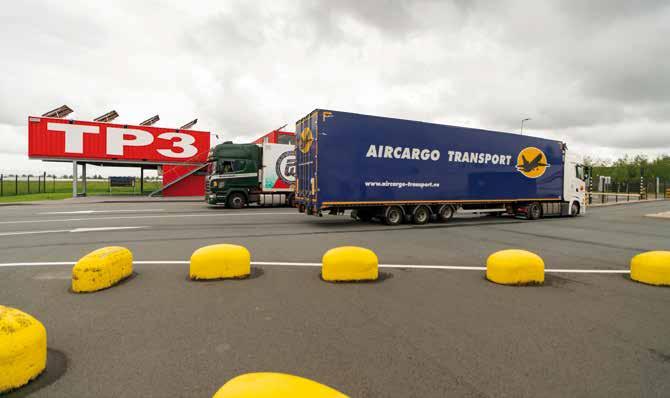
4 minute read
Cargo Claims & Loss Prevention from an Airline Perspective
by Cargomedia
When a cargo shipment suffers loss, damage or delay, it is necessary to have an efficient cargo claims and loss prevention programme in place. A poor claims process can result in dissatisfied or even lost customers, undoing all the good work performed in building up strong customer relationships. To avoid receiving cargo claims, clear and responsive communication with customers is essential, as is a strong cargo claims and loss prevention programme. Cargo Magazine spoke to Tamilla Suleymanova, Head of Claims and Suggestions Division for Silk Way West Airlines (SWWA), about how an airline views this key service.
How important is claims handling for SWWA? Tamilla: We believe that the claims process is a vital part of our customer service and business excellence programme. A solid loss prevention policy and a quick claim recovery cycle contributes to the quality of our service and our customers’ experience. We have developed a number of appropriate measures, including storage risk evaluation. With cargo crime on the rise, such measures help to reduce the number of claims and resulting costs for SWWA, as well for our business partners and shipper clients.
Advertisement
What are the best practices in processing claims? Tamilla: Efficient handling of cargo claims requires expertise in logistics, applicable law and jurisdiction, operational procedures, and so on. When a loss occurs, all parties have an interest in mitigating the potential effects. This is the right thing to do, and is indeed a procedural step in the claim process. It is often costly and time-consuming to obtain evidence and pursue a claim, but it is necessary to collect all the possible evidence to speed up the claims handling process and to ensure that everything is carried out properly. For example, proof of delivery and irregularity reports are crucial for the carrier to obtain. Also, additional data showing the conditions within a container, e.g., temperature, humidity, any kind of irregularity during carriage, can be useful in establishing the carrier’s liability.
What is the next step to be taken after the investigation? Tamilla: Once all the necessary information and documents have been collected, the claim is ready for review. The sooner the customer provides complete information to the carrier, the quicker the appropriate investigation can commence. This should allow the carrier to establish whether or not any damage, loss or delay occurred during the period when the cargo was in the carrier’s care. In the event that damage occurred outside the terms of the legal contract, the carrier may have a right to limit its liability. Once the claim is investigated and the carrier has identified whether it is liable or not for the loss of and/or damage to the goods, the case is considered closed and communication or settlement is finalized with the customer. To meet our customer expectations in this respect, SWWA offers a quick and easy claim registration process via our official website. SWWA strives to ensure that all claims are processed fairly and in a timely manner, also seeking to identify and improve the cargo handling procedure in an efficient way.
According to a report by the TT club-BSI, while theft of freight in transit remains the highest risk, losses from storage facilities have risen by 25% over the past year. Does SWWA have any special plans to deal with this? Tamilla: In order to track progress of cargo movement and strengthen cargo monitoring, additional CCTV cameras were installed in strategic positions in our warehouse. Due to the pandemic, alternative storage facilities were in use because of overloaded warehouses; this situation required close monitoring of the cargo in transit with regular updates. Such independent cargo monitoring data allows for faster and more efficient claims management process, reducing cost liability. This measure helped to ensure that all reasonable measures had been taken by the carrier, its agents and employees to prevent loss during extended storage.
How has the pandemic impacted your operating procedures? Tamilla: Although the pandemic has increased risk to cargo being held up in transit, high value goods and temperature-sensitive supplies such as vaccines and medical products in particular have been made a key priority by SWWA, and the airline took all necessary measures to prevent any possible irregularities. Throughout the Covid period, SWWA has made every possible effort to implement robust planning of cargo shipments. To ensure delivery of our life-saving freight, supplies are safely delivered to specially equipped warehouses, and are handled by personnel specifically trained for these unique conditions. A group of experts led by Silk Way West Airlines developed and implemented a plan to optimize all operational processes and introduce the latest logistics technologies for this purpose, while the modernization of the cargo terminal was diligently undertaken according to our specific requirements.
Tamilla Suleymanova Head of Claims and Suggestions Division Silk Way West Airlines LLC










